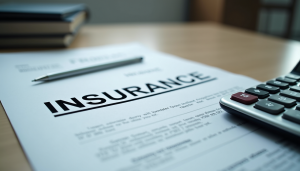But here’s the million-dollar question: Is your car—or your fleet—properly insured for what you actually use it for?
Whether you’re a one-person operation juggling gigs in a personal sedan or running a growing business with branded vans, here’s what you really need to know about personal vs. commercial car insurance in New Jersey.
Personal vs. Commercial Auto Insurance: What’s the Real Difference?
At first glance, car insurance is car insurance. You pay your premium, you get coverage, and you hope you never have to use it.
But that simplicity ends the moment your vehicle becomes a business tool.
Personal car insurance is designed for private, everyday use: commuting, weekend trips, school drop-offs, errands.
Commercial car insurance, on the other hand, covers vehicles used for work: transporting goods, hauling equipment, client visits, or making deliveries.
While they may share some basic components like liability coverage and protection against damage their terms, limits, and assumptions are very different.
Let’s break it down.
Small Business Owners Live in a Grey Area
Here’s where things get tricky.

If you’re a freelancer, contractor, or small business owner, chances are your vehicle wears multiple hats. You use it to go to the bank, pick up supplies, drop off packages and maybe pick up groceries on the way home.
But here’s what many don’t realize: most personal auto policies exclude business use. If you’re in an accident while running a work-related errand even something as simple as dropping off a product your insurer could deny your claim.
And no, your daily commute doesn’t count as “business use” in this case. It’s covered. But once you’re operating in a commercial capacity even occasionally it’s time to seriously rethink your policy.
Pro tip: If you’re using a personal car for occasional business tasks, look into hired and non-owned auto insurance (HNOA). It won’t cover damage to your car, but it will protect you from liability if you’re sued after an accident while driving for work.
The “Named Insured” Is Not Always a Person

In personal policies, the “named insured” is typically you or perhaps a spouse or family member. You are the one covered by the policy, and your name appears on it.
However, the “named insured” in commercial plans is frequently a corporate organization, such as a company, LLC, or sole proprietorship. Any approved drivers using automobiles for business purposes are covered by the company’s coverage.
Important legal protection is provided by this framework. The company, not necessarily you personally, is liable if something goes wrong.
Liability Coverage: The Main Points of Difference

The area where personal and business policies diverge most is in liability coverage.
The main goal of a personal policy is to shield you from the consequences of regular driving, such as collisions, injuries, and property damage.A commercial policy must account for more complex, higher-risk scenarios like multiple drivers, larger vehicles, and the cargo or equipment you’re hauling.
Not only are the risks more varied in a business context, but the dollar amounts involved are often much higher. Think lawsuits, third-party damages, and loss of business income.
If your vehicle is essential to your business, your liability limits need to reflect that reality.
Coverage You Didn’t Know You Might Need

Commercial policies can be tailored with a variety of coverage types that wouldn’t usually appear in a personal plan. These might include:
Cargo insurance: if you transport products or equipment
Trailer coverage: if you haul tools or supplies
Employee coverage: if someone else drives the vehicle for work
Rental reimbursement: for business-use rentals
Meanwhile, comprehensive and collision coverage still exist in both personal and commercial plans but what’s included, and how much you pay, will vary based on your use and risk profile.
What If an Employee Uses Their Own Car?

Here’s a scenario many employers overlook: Your employee uses their own car to run a business errand. Maybe to drop off a check at the bank or pick up a part.
If they get in an accident, their personal auto policy may not cover the incident especially if they admit it was for work.
That’s where hired and non-owned auto insurance comes into play again. It fills in those dangerous coverage gaps by protecting your business from liability, even when the vehicle isn’t yours.
Do You Need Collision Coverage? It Depends.
If your vehicle is older or fully paid off, you might think skipping collision coverage is a smart way to save money.
But if it’s critical to your work say, a van for catering gigs or a pickup for landscaping, ask yourself: Could you afford to replace it tomorrow if it were totaled? If the answer is no, that coverage might be worth every penny.
Commercial Policies Often Carry Higher Liability Limits
The stakes are simply higher when your vehicle is tied to your livelihood. Commercial auto insurance frequently has substantially greater liability limits as a result.
Protecting your business, staff, goods, and reputation is just as important as protecting yourself.
Those additional layers of safety might be crucial in New Jersey, where risk factors including traffic congestion, erratic weather, and congested urban driving areas can increase.
Conclusion: The Policy That Reflects Your Reality Is the Correct One
When it comes to personal versus business auto insurance, there is no one-size-fits-all solution. The following determines your optimal policy:
What sort of employment do you do?
Who operates the car?
What sort of equipment or cargo is involved?


